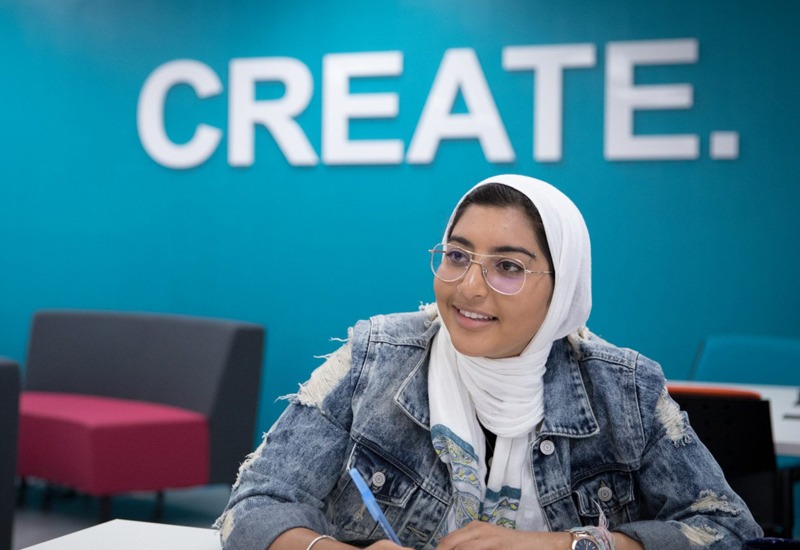Unlocking entrepreneurship

The Memorial Centre for Entrepreneurship (MCE) is aiming to increase participation for women and non-binary students with two new awards at its annual startup competition.
The sixth annual Mel Woodward Cup will feature an Entrepreneurship Award for Women or Non-binary Leadership and an Entrepreneurship Award for an Early-stage Idea. Both are valued at $2,500 and will complement the $40,000 and in-kind prizes awarded to student startups during the competition.
The 2022 Mel Woodward Cup will be held on March 23, 2022. Students have until March 1 to apply.
Support from Fry Family Foundation
“We’ve heard repeatedly from women that they didn’t feel they were ready to apply to the Mel Woodward Cup, even though they tend to do very well when they do participate,” said Florian Villaumé, the centre’s director. “We hope this will encourage students, especially women and non-binary students, to apply even if they think their idea is very early.”
The two new awards are funded by the Fry Family Foundation, which has a significant focus on leadership development in Newfoundland and Labrador and beyond.
“We’re pleased to help support the Memorial Centre for Entrepreneurship in its efforts to engage more women and non-binary students,” said Paul Burt, the foundation’s president. “We strive to encourage students to become tomorrow’s great leaders, and entrepreneurship is one avenue through which they can achieve this.”
Research into barriers faced
The number of women and non-binary students who participate in entrepreneurship at Memorial has been low since the MCE’s inception in 2017, Mr. Villaumé says.
In 2019, they began taking steps to address low participation from women, first by assessing the centre’s programs and participants and then undertaking research with Dr. Kara Arnold, professor of organizational behavior and human resources management at the Faculty of Business Administration, and Dr. Carlos Bazan, chair in entrepreneurship at the Faculty of Engineering and Applied Science.
They identified four barriers for women in entrepreneurship: a more masculine entrepreneurial stereotype, biases within the entrepreneurial ecosystem, lack of role models and mentors and a lack of confidence that they have the necessary skills to succeed.
“… we hope to achieve a deeper transformation of the Memorial and local startup ecosystem.”— Florian Villaumé
“We learned that a lot of the barriers faced by women students are similar to ones faced by women in our society in general,” said Mr. Villaumé. “In particular, it seems that our society is more designed for men to succeed in high-growth entrepreneurship. By having more women and non-binary students involved in these systems, we hope to achieve a deeper transformation of the Memorial and local startup ecosystem.”
The MCE consulted with several other organizations as part of its research, including the Women’s Knowledge Entrepreneurship Hub in Toronto.
Plans to reach women and non-binary students
To date, the centre’s efforts have focused on women but they hope to expand initiatives targeting women to non-binary students as well.
Initiatives taken to diversify participants so far include offering virtual childcare during workshops, engaging high-growth women entrepreneurs outside the province as speakers to increase the number of role models, committing to equal representation of women and non-binary entrepreneurs among startup coaches, redesigning the application form and marketing materials for the Mel Woodward Cup to remove unconscious biases, and increasing individual outreach and dedicated programming to women and non-binary students.
This has resulted in a small increase in women and non-binary students attending workshops and events – up from 25 per cent in 2018-2019 to 39 per cent in 2020-2021 – but not in meetings with startup coaches or Mel Woodward Cup applications.
Aside from a high of 23 women and non-binary applicants in the 2019 competition, participation from those demographics in the Mel Woodward Cup has remained steady at 12.
“… we don’t want to miss out on supporting this segment of the student population that could be aspiring entrepreneurs.”
Mr. Villaumé isn’t satisfied with those numbers.
“The majority of Memorial students are women, and we don’t want to miss out on supporting this segment of the student population that could be aspiring entrepreneurs,” he said. “There’s also a lot of market opportunity for products and services that target women and non-binary individuals, and research shows that diverse startup teams are more successful. There are plenty of opportunities in entrepreneurship for women and non-binary students.”
‘No idea is too early’
The MCE’s goal is to double the number of women and non-binary student entrepreneurs engaging with its programs over the next three years.
They plan to do this through diversity targets and a new student ambassador team of women and non-binary students that launches in January. They also plan to offer referral and bring-a-friend initiatives for workshops and other events, to increase the number of women startup coaches, to offer exclusive funding and to continue to do research that helps MCE inspire women and non-binary students to pursue entrepreneurship.
“We invite all women and non-binary students to discuss their business ideas with us and apply to the 2022 Mel Woodward Cup. No idea is too early,” said Mr. Villaumé. “Taking these steps will make you more likely to be successful while also diversifying our ecosystem, which will only make it stronger.”